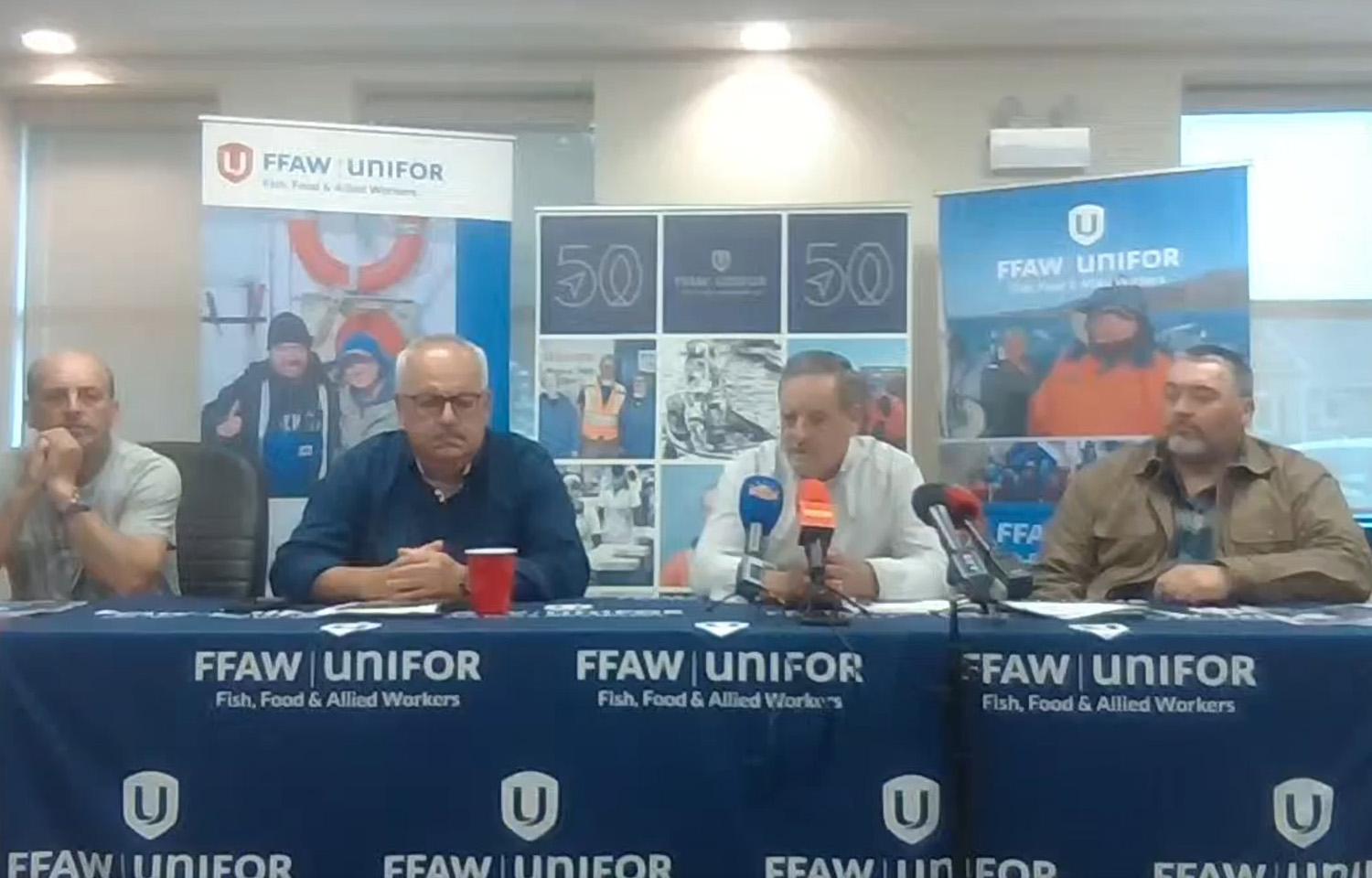Fish Harvesters in Newfoundland and Labrador, Canada, alongside the Fish, Food, and Allied Workers Union (FFAW) – which represents fishers in the region – are calling on the Canadian government to honor a cod quota commitment that originated in 1982.
Canada’s Department of Fisheries and Oceans (DFO) recently reopened the 2J3KL northern cod fishery after a 32-year moratorium. The fishery had a limited quota available under the status of a “stewardship” fishery, but Canadian Minister of Fisheries Diane Lebouthillier decided to increase the quota by 5,001 metric tons (MT) to 18,000 MT.
That quota was divided between multiple parties, with the inshore fleet receiving 83.73 percent, or 15,071 MT, while the offshore fleet received 6 percent, or 1,080 MT.
The quota given to the offshore fleet, according to the FFAW, ignores the 1982 federal commitment to give the inshore fleet the first 115,000 MT of the reopened cod fishery.
“[Canada] Prime Minister Justin Trudeau promised in writing in 2015 that the 115,000 MT commitment from 1982 would be protected and that inshore harvesters would be the primary beneficiaries of the northern cod stock," FFAW President Greg Pretty said. "But, here we are at a quota of around 19,000 MT, and the Trudeau government is already letting the offshore draggers back onto the water.”
FFAW has asked the government to ban offshore drag fishing until the 115,000 MT threshold can be met to protect it. A fishery improvement project for northern cod launched in 2015 has been working to restore the stock to some success, but FFAW said allowing offshore fishing could undo that work.
“Inshore harvesters who contributed to the northern cod stewardship fishery are rightfully concerned that their work (and sacrifices!) undertaken over the past decades to preserve fish stocks will be eradicated by large-scale, offshore operations,” FFAW said.
The only way forward with the fishery while also protecting the stock is to revert the fishery to the same rules it was under in 2023 as a stewardship fishery, it said.
“This fishery needs to be protected for generations to come, and breaking the 115,000 MT promise and allowing draggers back in already is going to do irreparable harm to our fishery, our coastal communities, and our province as a whole,” FFAW Inshore Council Member Glen Winslow said in a release.
Pretty said the inshore fleet has plenty of capacity to fish the stock to its full quota, and permitting “environmentally destructive” dragging fleets runs counter to the Government of Canada’s mandate.
“As a province, we will not sit by and let it happen,” he said.
While FFAW and inshore harvesters railed against the reopening, the Fisheries Council of Canada (FCC) called sharing the quota an important decision for communities in Newfoundland and for the industry. Members of the FCC invested in the reopening of the stock and are working with both the government and other participants in the industry, the organization said.
“We need to work together to harvest, process, and market a sustainable, high-quality product that will be sought after in Canada and around the world,” FCC President Paul Lansbergen said. “Northern cod is an iconic species, and it can be a modern day success story for Canadian fisheries.”








